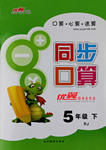题目内容
Speaking __________ an important _________ _______ (起作用) learning English.

 优翼小帮手同步口算系列答案
优翼小帮手同步口算系列答案For any person who must speak in public, to business or pleasure groups, humor is a helpful, and necessary, tool for getting your message across. Why does humor work a lot? There are several reasons.
People will enjoy what you have to say if it is presented with humor. But, more importantly, if you are in a situation where important, and perhaps controversial(有争议的), ideas must be presented to less than open minds, humor allows those ideas to be presented in a non-threatening (无威胁的) manner. Abraham Lincoln was famous for his ability to relate humorous stories to make a point. Humor used carefully throughout a presentation will also keep the listener’s interest high. In a word, individuals learning how to use humor in their speeches can strengthen arguments, support interesting presentations and, most of all, entertain their audience in a positive and comfortable way.
While popular culture may well hold many kinds of humor, some of it has no place in presentations that are designed to educate and encourage the audience. If you want to become a professional stand-up (单人表演的) comedian whose goal is 100% entertainment, then you may be able to use some of the reference materials like The Art of Using Humor in Public Speaking. They can help you develop your skills and sources of humor. To that end, your participation in this study of humor will become necessary. Hopefully, you will come to appreciate the special difficulty of entertaining the audience with good and clean humor.
【小题1】 How many reasons does the author give for using humor?
| A.Two. | B.Three. | C.Four. | D.Five. |
| A.To educate the audience. | B.To encourage the audience. |
| C.To entertain the audience. | D.To exchange with the audience. |
| A.It was good for training one’s skills of humor. |
| B.It helped the readers relax after work. |
| C.It gave some tips on how to live a positive life. |
| D.It was a textbook for professional stand-up comedians. |
| A.Finishing. | B.Conclusion. | C.Stop. | D.Result. |
| A.science researchers | B.public speakers |
| C.dress designers | D.sports players |